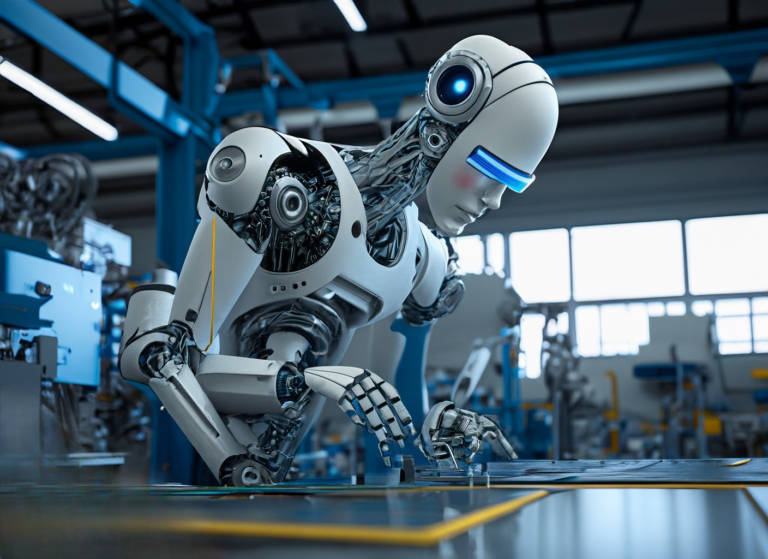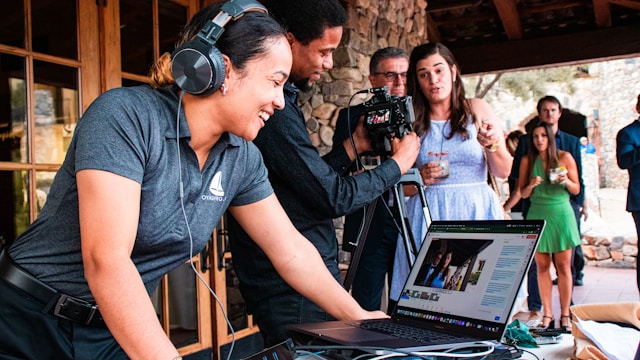The Evolution of Work: A Future Beyond 9 to 5
Thirty years ago, the concept of emails, websites, and social media seemed too futuristic for the offices of 1993. The modern conveniences that are integral to today’s work environment were once considered novelties. Fast forward to the present day, and it’s almost impossible to imagine a functioning office without these technologies. The relentless march of technology continues to reshape our work environment, and with the advent of Artificial Intelligence and advanced technologies, the traditional 9 to 5 work model is on the brink of becoming obsolete.
The Traditional Work Model: A Relic of the Past?
The conventional 9 to 5 job has long been considered a stable and secure career path. However, financial educator Ryan Scribner argues that this traditional path can be a “complete scam.” He explains that many people end up in undesirable jobs, with limited growth potential and financial freedom, often feeling like “poorly paid indentured servants.”
Scribner illustrates that the traditional education system primarily presents two paths: one leading to low-paying jobs with no prior education and the other leading to slightly better-paying jobs but often accompanied by massive debt from college education. He states, “Most people don’t want to end up in this option, and so what they do, and what the education system pushes people to do, is follow option number two, which is to go out there, get some form of college education to hopefully get a slightly better nine-to-five.”
The Rise of Entrepreneurship and Online Businesses
Scribner emphasizes the third option, entrepreneurship, particularly internet-based businesses, as a viable alternative to the traditional work model. He explains that this path involves taking risks, learning from mistakes, and eventually creating something on one’s own. “It’s the only way I’ve ever discovered out there that could have that kind of exponential growth curve when it comes to your net worth,” Scribner asserts.
He points out that the nature of entrepreneurship has changed significantly in recent years due to the internet. Unlike the past, where starting a business involved substantial initial investments and losses, internet-based businesses offer low expenses and quicker returns. Scribner’s journey involved leveraging platforms like YouTube and exploring affiliate marketing, illustrating the diverse opportunities available online.
The Impact of Artificial Intelligence and Advanced Technologies
The ubiquity of Artificial intelligence and advanced technologies is further pushing the boundaries of the traditional work model. These technologies are automating routine tasks, enabling remote work, and creating new job roles and industries, making the rigid 9 to 5 structure increasingly redundant.
AI and technology are not just reshaping the nature of work but also redefining the concept of workplaces. The COVID-19 pandemic accelerated the adoption of remote work, proving that many jobs can be performed efficiently outside the conventional office setup. This shift is prompting a reevaluation of work-life balance and the necessity of a fixed work schedule.
The Future of Work: Flexibility and Autonomy
The future of work is likely to be characterized by flexibility, autonomy, and a focus on individual skills and talents. The advancements in technology and AI are enabling a more personalized and adaptable approach to work, allowing individuals to explore diverse career paths and work models beyond the conventional structures.
The rise of gig economy platforms and freelance opportunities is a testament to this evolving landscape. These platforms are empowering individuals to take control of their careers, choose their projects, and determine their schedules, challenging the notion of job security associated with 9 to 5 jobs.
A Paradigm Shift
The transformation from a world where emails and social media were considered futuristic to one where AI and advanced technologies are integral parts of our lives illustrates the rapid pace of change. The traditional 9 to 5 work model, once deemed secure and stable, is being questioned and reevaluated in light of the evolving work environment.
Ryan Scribner’s insights shed light on the limitations of the conventional paths and the potential of entrepreneurship and online businesses in achieving financial freedom and personal fulfillment. The continuous advancements in technology and AI are likely to further disrupt the work landscape, making flexibility, autonomy, and adaptability the cornerstones of the future of work.
As we navigate this paradigm shift, it is crucial to embrace the opportunities presented by technology and rethink our approach to work. The future is not about adhering to fixed structures but about exploring diverse possibilities and creating a work environment that aligns with individual needs and aspirations.













+ There are no comments
Add yours